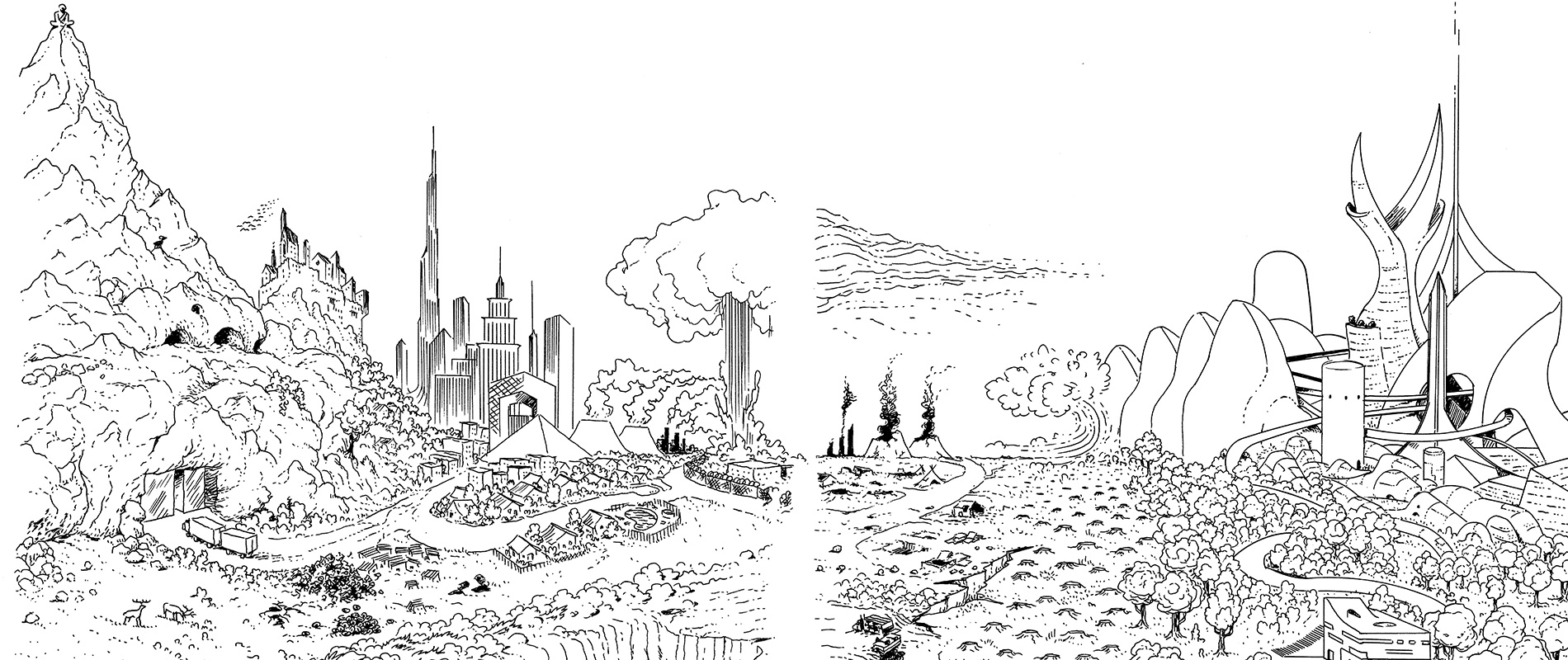Cross-contamination
I stumbled on the following a while ago on Blissblog:
“Along with the many cross-contaminations between rock-etc and s.f., one thing that Heller’s book reminded me of was that many of the very earliest rock criticism publications were started by people who had previously done science fiction fanzines.
Simon Reynolds | Blissblog
Intensely self-reflexive fields, rock criticism and science fiction share a strange mix of inferiority and superiority complexes. Painfully aware of their marginal position vis-à-vis “proper” journalism and “respectable” literature, they nonetheless believe that they are doing the Most Crucial Writing of Our Time. I can remember from my own days as an adolescent s.f. fanatic being struck by the s.f. writer’s culture of workshops and conventions – by how the writers loved to write essays defining s.f. as a genre, proclaiming its unique contribution to literature. There were even a few volumes of essays by s.f. writers debating s.f. that I remember reading.
This. This exactly describes me during High School. Except replace music with comics. I took pains to let everyone know that comics were the most important thing. I’m sure it was very annoying. Whenever I had to write essays about books in English class, I tried to convince my teachers to let me write about X-Men, Spider-Man, Fantastic Four, and whatever else I was reading at that time. Most of the time I was shut down, but a few teachers indulged as long as I could ‘prove’ to them that comics weren’t just kid’s stuff. Actually that was crucial. It challenged me to look at comics somewhat differently, and probably led to my actively seeking out better comics to impress my teachers.
Every Page a Painting

I have a pretty intense memory of showing Kid Eternity to my teacher. This is the Grant Morrison & Duncan Fegredo 90’s revamp with fully painted art. I remember challenging my teacher to look closely at the art. “It’s all painted” I’d say. “EVERY page is a full painting! Imagine if Michaelangelo had to paint the Sistine Chapel, over and over again, and tell the whole story in that famous painting.” I was definitely already a Science Fiction fan at this point. In Poland, I’d collected the magazine Fantasyka, which serialized sci-fi novels and comics. In the US, I read whatever sci-fi my library had on hand. Harry Harrison, Asimov, Pohl, Piers Anthony, David Eddings, Heinlein, Lem, etc.
Sub-Genre of Utopia
To speculate wildly here… if we follow Fredrick Jameson’s assertion from Archaeologies of the Future, and think of Science Fiction as a sub-genre of the utopian novel (not the other way around), then sci-fi retains a utopian imaginary somewhere underneath all of the technological dress up. Sci-fi at it’s core imagines and extrapolates different worlds/futures based on different customs, different technologies, different environments (planets), etc. It’s easy to imagine young brains blown to bits by science fictional speculations.
I don’t think that I was consciously doing this at the time, but in retrospect, I must have been thinking about comics as some kind of major human innovation. The comics I was reading were not perfect, but I imagined a different future, where comics were the dominant literature. It’s a science fictional extrapolation. Take something small and insignificant from today, and imagine it as a dominant form in the future. Or at least, as something that has the capacity to become that.
Inventing a Future

I imagine young Gary Groth in a similar mode. He takes over The Nostalgia Journal, a fantasy, sci-fi, comics, fanzine, and turns it into The Comics Journal, the most important magazine in the world. There was an inkling there already, a belligerent insistence on the importance of the medium. And all this without clear evidence for that importance, as The Comics Journal kept reminding us, while frequently berating the industry for failing to make great comics. It comes out of that same era. Sci-fi fanzines, pop/rock fan-zines, comics fanzines – popping up everywhere – creating new critical appreciation for debased art forms; art forms that were new and vital and popular. There was no rule book on how to write about these things. They had to invent it in real time. They were inventing the future in real time.







